World War Two Wren, 101, releases London memoir
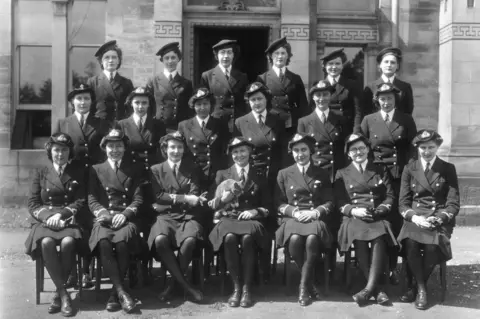 Lamb family
Lamb familyOne of the last surviving Wren officers to have served throughout World War Two has released a book about her experiences.
Christian Lamb, 101, the daughter of an admiral, joined the Women's Royal Naval Service in 1939.
She was in London during the Blitz, helped to plan the D-Day landings from Churchill's war rooms and later became a naval wife.
She described her war work as "very, very exciting but very, very secret".
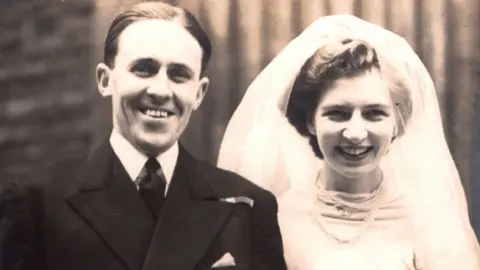 Lamb family
Lamb familyShe said she did not speak of her key role in the conflict "for about 50 years".
"After Dunkirk, Churchill spoke and made marvellous speeches about 'we will fight on beaches, we will fight on the hills, we will never surrender'.
"And it summed up exactly how I felt. I always knew we would never surrender," she said.
Mrs Lamb was holding promotional interviews at the Savoy Hotel, where she spent her wedding night in December 1943.
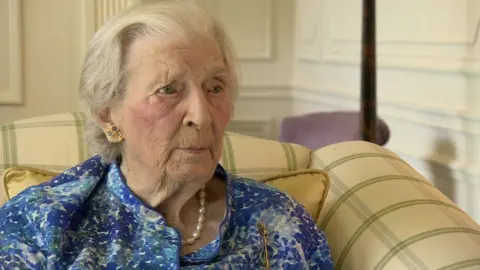
She said she was often asked if she and her peers "had been terrified" during the war, but in her experience "everything went on as normal".
"If you were in a theatre or something, the whole audience would sort of swerve to one side if they heard bombs approaching, but as the sound moved on or receded they would get back in their seats," she said.

A brief history of the Wrens
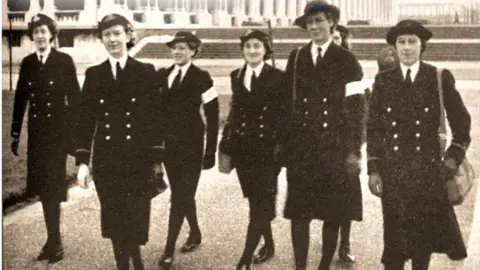 Lamb family
Lamb family- In 1917 it was announced that a new shore service would be formed - Women for the Navy
- By 1919 there were 7,000 Wrens including cooks, despatch riders, sail makers and those in intelligence. The motto was 'Never at Sea'
- In 1939 the campaign "Free a Man for the Fleet" persuaded 3,000 women to sign up. Roles included radio operators, meteorologists and bomb range markers
- By 1944, numbers were at their peak of about 74,000 personnel
- After the war, a small permanent Women's Royal Naval Service of 3,000 was retained for mainly administrative and support roles
- In the 1970s the Wrens was integrated with the Royal Navy
- By the 1990s, falling Royal Navy recruitment numbers raised the need for Wrens to go to sea. The first 20 volunteer Wren Officers and ratings joined HMS Brilliant
- The Women's Royal Naval Service was disbanded and 4,535 women were integrated fully into the Royal Navy and able to serve on HM ships at sea, at all ranks and rates, including the Royal Marines Band
- Women became eligible to join the Royal Marines Commandos in 2019

For relaxation, she and a former school friend would "tear around the London parks" on a motorbike owned by the other girl.
"I would ride pillion, and it would cheer us up. It did us a great deal of good," she said.
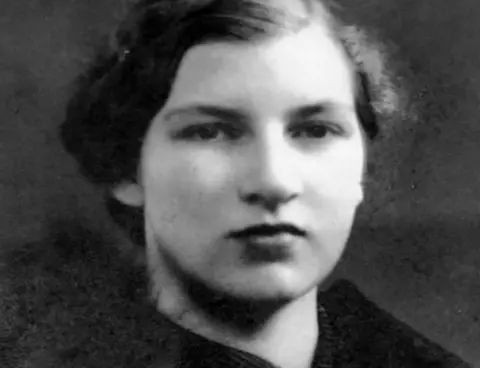 Lamb family
Lamb familySince the war, Mrs Lamb has become a noted expert on the history of plants, and has been heard on BBC Radio 4's Gardeners' Question Time.
She said she has no more ambitions to fulfil and, after the publication of Beyond the Sea: A Wren at War, plans to write books that "are only of interest to myself".
"They will be very selfish books about things I'm interested in that I can research and find more out about," she added.
